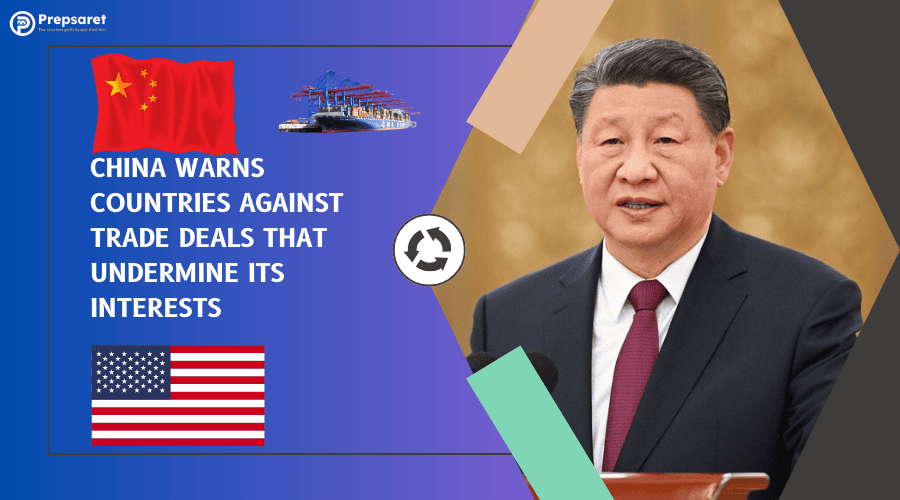China has issued a sharp warning to nations considering trade agreements with the United States that could disadvantage Beijing, vowing to take firm countermeasures if its interests are undermined amid the ongoing U.S.-China tariff standoff.
The statement from China’s Ministry of Commerce comes amid growing concerns that the Trump administration is leveraging its tariff policy to pressure third-party countries into isolating China economically.
A recent report by The Wall Street Journal suggested that Washington has been negotiating with foreign governments to restrict Chinese trade in exchange for exemptions from the sweeping U.S. tariffs imposed earlier this year.
“Appeasement does not bring peace, and compromise does not earn respect,” a Commerce Ministry spokesperson said. “China firmly opposes any party reaching a deal at the expense of China’s interests. If such a situation arises, China will not accept it and will resolutely take reciprocal countermeasures.”
China Pushes Back as U.S. Tariff Pressure Builds
The warning coincides with President Trump’s recent decision to temporarily pause new tariffs on most nations—excluding China—while pressing allies and partners to commit to curbing economic ties with Beijing.
The administration has reportedly sought guarantees that countries will block Chinese goods, deter Chinese firms from setting up operations locally, and avoid becoming alternative markets for Chinese exports.
In response, Beijing has intensified diplomatic efforts to build alliances. President Xi Jinping recently toured Vietnam, Malaysia, and Cambodia, offering economic partnerships and free-trade assurances in contrast to what Chinese officials describe as Washington’s “economic coercion.”
Still, China’s aggressive rhetoric and military posturing have complicated its outreach. Concerns remain over Beijing’s economic retaliation capabilities and its assertive presence in contested regions, such as the South China Sea and near Taiwan.
“Countries may be open to engaging with China economically, but many remain cautious of becoming entangled in its strategic ambitions,” said Elizabeth Economy, a senior fellow at the Hoover Institution.
Beijing has already raised tariffs on U.S. imports to 125% and has begun restricting imports from key U.S. industries, including aerospace and entertainment. Chinese officials have also hinted at further retaliatory moves if more countries align with U.S. efforts to sideline China.
Related headlines:
- Hong Kong suspends postal service to the US after Trump’s tariff hikes
- China’s economy grew by 5.4% in first quarter of 2025 but US tariff shock looms large
While nations like Japan and South Korea have begun negotiations with Washington, they face difficult decisions balancing their economic reliance on China with political and trade ties to the U.S.
As the world’s two largest economies dig in, countries caught in the crossfire are treading carefully, wary of choosing sides in a dispute with global implications.

